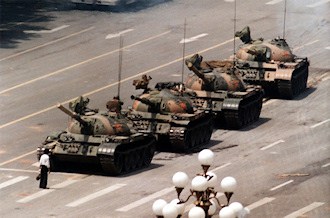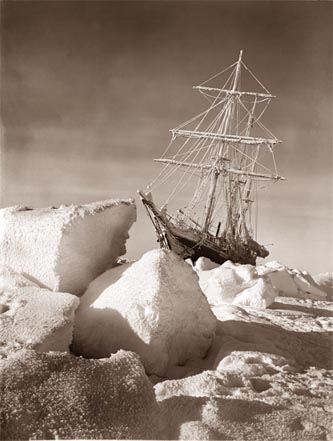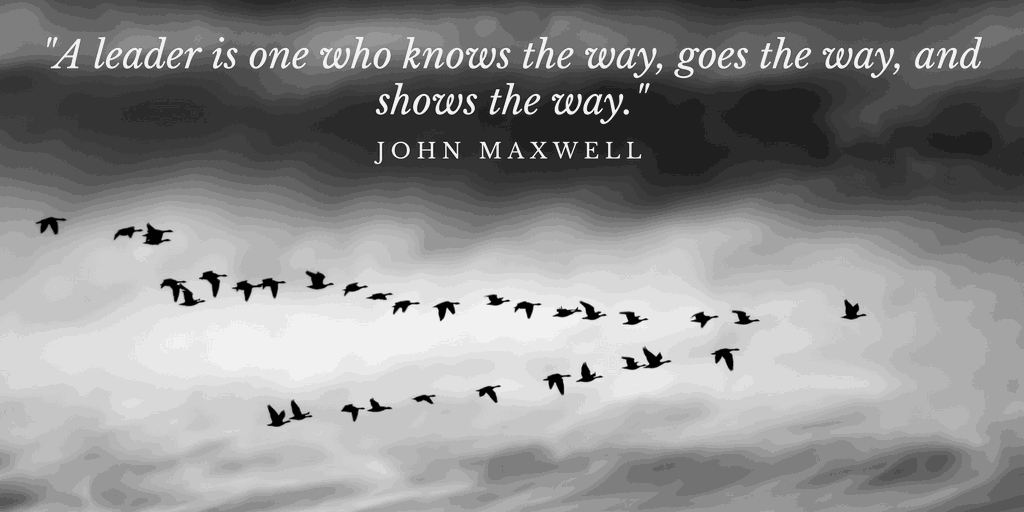Search for books on leadership, and you will find over 200,000 results. Beyond these books, there are countless other inspiring stories. Pick up a history book and read about Abraham Lincoln, Joan of Arc, Martin Luther King Jr. or Mother Teresa. Every one was a great leader.
During their time and today, people considered them idols. They were extraordinary. But leadership isn’t reserved for presidents, ministers or war leaders. No matter the cause, there is always a need for someone to step up and lead. In fact, leadership doesn’t even have to come from a leader.
While unthinkable today, in the 50’s whites and blacks had to sit in separate sections on buses and trains. Even worse, if there weren’t enough seats for white riders, black ones needed to stand.
Rosa Parks got on a Montgomery bus on December 1st, 1955 and sat down after a long day at work. The bus became crowded, and as the seats started to fill, Rosa sat. Once full the bus driver ordered her to give up here seat. Rosa sat. Before long the police came and hauled her off to jail. Because of her choice to sit, she helped ignite a fire in the Civil Rights Movement. Rosa did more than sit that day. She became a leader.
On June 6, 1989, there was another brave act of leadership. It happened in Tiananmen Square. The day before, the Chinese government attacked their people to stop protests across the city.
With a show of force, tanks rolled through the Square. Then a lone protester stepped into the path of the tanks and stopped. The tanks tried to move left, and so did the man. They moved right, and the man did the same. After many attempts, the tanks shut off their engines and stopped. It was a stalemate.

Before long, two men pulled him aside, and the tanks continued on their way. No one knows who this man was or what happened to him. While that is a mystery, the picture of his defiance is one of Time Magazine’s 100 Most Influential Images of All Time. Time also named him to the list of the 100 Most Important People of the Century.
It’s not necessary to get arrested or stare death in the eye to prove leadership. But these stories remind me that leadership can come from anywhere. No matter who we are, we all have something great within us.
What makes a great leader
Early in the 1900’s Andrew Carnegie was the wealthiest man on the planet. He came to America from Scotland in 1848. Mr. Carnegie started with very little when he went to work as a telegrapher. Before long, he began making investments in railroads, bridges and the oil industry.
He was a student of success. He not only figured out the keys to being a great leader, but he also shared them with Napolean Hill. Thanks to that relationship, we have an excellent record of his insights.
Mr. Carnegie shared 30 traits of successful leaders. Here is his list:
-
They have a purpose and a plan for attaining it.
-
Their motivation drives them.
-
They surround themselves with talented people.
-
They are self-reliant.
-
They have intense self-discipline.
-
They are persistent.
-
They are creative.
-
They are decisive.
-
They collect all the facts before making judgments.
-
They are enthusiastic.
-
They are fair.
-
They have an open mind.
-
They exceed expectations.
-
They are tactful.
-
They listen more than they speak.
-
They pay attention to detail.
-
They don’t stop.
-
They can take criticism.
-
They know when to restrain themselves.
-
They are loyal.
-
They know when to be candid.
-
They understand others’ motivations.
-
They are likable.
-
They stay focused.
-
They learn from their mistakes
-
They take responsibility for the mistakes of their team.
-
They recognize the achievements of others.
-
They treat others the way they would like to be treated.
-
They are optimistic.
-
They can remove emotions from decision making
I’ve been lucky enough to work with some great leaders. Every one of them had these traits to some degree. But no one is perfect. No leader is perfect. It isn’t necessary to do all these things, but leadership does need us to do many of them.
Leadership against all odds
For the majority of us, we can go through life learning and improving as we go. But, sometimes life forces our hand, and all we can do is act. Whatever is deep inside of us will show through and prove who we are and what we’re made of.
This happened to in 1914 to the polar explorer Sir Ernest Shackleton. During his trans-Antarctic expedition, disaster struck. His ship, the Endurance, got trapped in the ice packs. The 28 men were at the mercy of Mother Nature. If the packs broke up, they could continue. If not, the ship would get crushed and maroon the men on the unforgiving ice.

With each day the ice squeezed the ship. Before long she couldn’t take it anymore and started to crack. The men made it off with their dogs, supplies, and lifeboats as they watched her go down.
Shackleton had the men set up camp and then started to develop a plan. Given the weather, they had no choice but to stay put. There was no way to make it across the Antarctic on foot. They had too much ground to cover. So they waited for months in unbearable conditions.
As the weather changed and the ice started to break, they dragged the ships towards the water. The three lifeboats set off to reach Elephant Island. It was a 720-mile journey in tiny wooden boats, across some of the roughest seas in the world. Somehow they survived.
After making landfall, they had another problem. The crew still had to travel to the South Georgia whaling station. At this point, they have been stuck in the Antarctic for over a year.
Sailing to South Georgia would be the toughest test. Knowing the danger, Shackleton took a skeleton crew. By some miracle, they spotted the island. They couldn’t make landfall though because of a hurricane that moved in. They were stuck riding out the storm in the ocean.
The following day they finally made it to shore. Unfortunately, they were on the wrong side of the island. Not willing to press his luck at sea, Shackleton and two others decided they would make the crossing by land. No one had ever attempted this before. It was a suicide mission.
Before setting out, they pushed screws into their boots to help them climb the ice. They grabbed some carpenter hammers and one 50 foot section of rope. They set off on the 32-mile journey, crossing mountains and braving the terrible weather. They could have died countless times. Shackleton persevered, and after 36 hours they made it to the whaling station.
I was in awe after reading about this journey. I can’t imagine the pain these men experienced or the loss of hope. Somehow Shackleton kept his men alive and moving forward. It took years, but he did it. Any average person might have given up many times on that journey. Shackleton didn’t and in the process became a leadership role model for the world.
Summary
Leaders are not born, they are made. Every skill that Andrew Carnegie talks about is something every one of us can learn.
Bill Campbell said “Your title makes you a manager. Your people will decide if you’re a leader, and it’s up to you to live up to that.” Leadership doesn’t come from a title, and there is no point in waiting for one to decide to lead.
Whether it was sports, my community or jobs, there was always a chance to lead. I discovered that there were opportunities everywhere. It was like a fork in the road. Down one path was stepping up and taking ownership of something, big or small. Down the other path was the status quo. I could stay where I was and let the world keep on spinning.
In the beginning, I would take the projects no one else wanted. That was fine. I needed the practice. Besides learning what it takes to lead, I let others know that this was something I cared about.
Before long, people took notice and started giving me more responsibility. My actions created a flywheel effect. Bigger projects meant more leadership opportunity and bigger lessons. Every experience would build on the last one. It had a compounding impact on my life.
I’m not some great leader and I’m OK with that. Greatness isn’t necessary to have an impact. Leadership is something we are all called to do. I for one will keep raising my hand and try to get better each day.
This post is part of a series of letters to my kids. My goal is to reflect on and capture as many life lessons as possible. Here is the current list I am working from.



